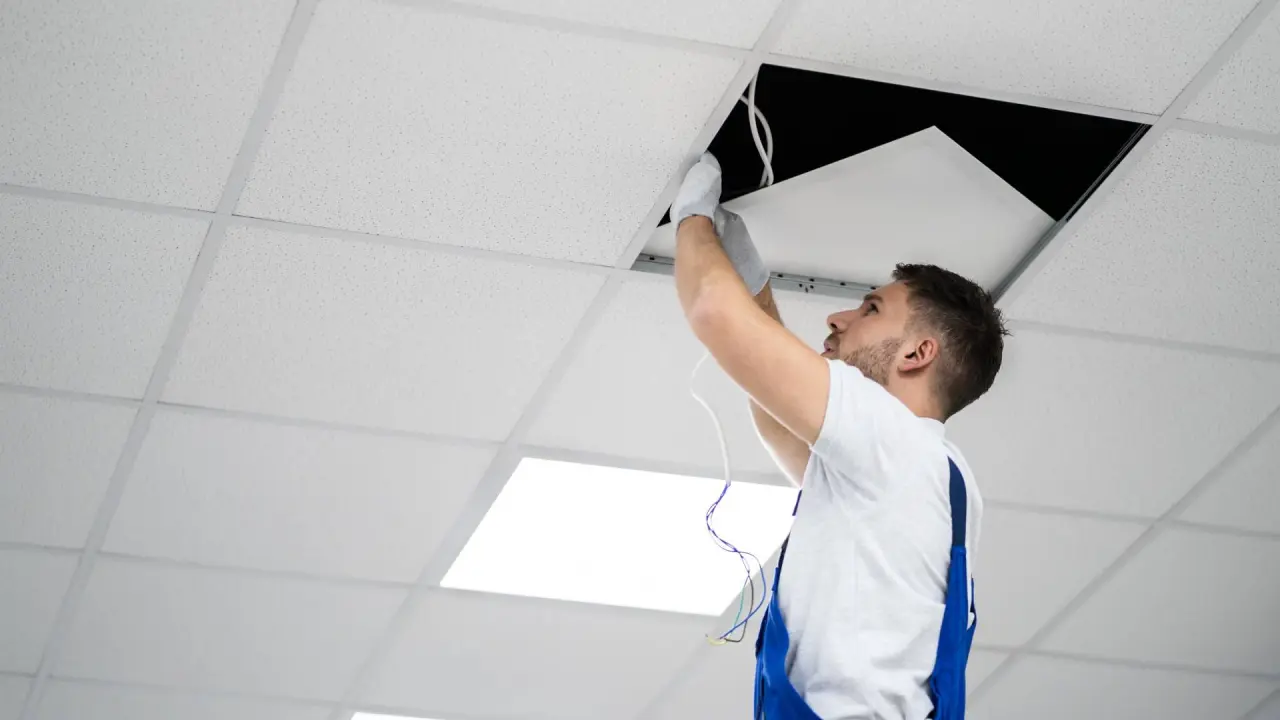- Cost of Selling a Dental Practice: What You Need to Know
Cost of Selling a Dental Practice: What You Need to Know

Putting your dental practice up for sale can be a big step in your career or life. Understanding the costs and expenses associated with selling your dental practice can help you create smoother sailing as you embark on whatever new journey you have planned. Discover more about dental practice sales below, including the expenses associated with the process.
Reasons for Selling a Dental Practice

Before getting into the costs associated with selling a dental office, you may want to ensure you're considering selling your business for the right reasons. Here's a look at a few of the most common reasons for selling a dental practice.
- You're ready to retire. If you're ready to retire from dentistry, selling your practice might be the obvious step between work and relaxation. Plus, depending on how much you can sell the practice for and what your personal and business liabilities might be, you could use the profits to fund part of your retirement.
- You need to move. Perhaps your spouse got a too-good-to-pass-up career offer in another state or you want to move to be nearer to your family. Whatever the reason for it, if you're moving far enough to make a daily commute too cumbersome, you may want to sell your practice to a dentist who wants to treat patients in the area. You might even use the proceeds of selling your practice to buy a dental office for sale in your new city.
- You want to make a career move. Dentistry may not be the right career choice for you anymore, and that's okay. But you don't have to throw all of your hard work away. Putting your dental practice up for sale can provide you with some funds to cover expenses as you figure out your next move while ensuring your patients are left with a qualified provider to care for their oral health.
No matter your reason for selling your practice, getting the most out of the deal is an important priority. And the more you're relying on those funds, the more you may be concerned with the costs and other factors associated with the transaction.
How Long Do Dental Practice Sales Take?

Another important consideration when making plans is the length of time it might take to sell your practice. It could sell within months. It could also take years to sell.
You're obviously selling to a limited market. How limited depends on the state your practice is in: Some states don't allow anyone who isn't a dentist to own a practice.
Other factors that might make your dental practice a bit harder to sell quickly can include the market you're in (is it a big city or a small town, for example) and the health of the business overall. You may sell a practice faster if you have a robust patient list and bring in plenty of revenue, because buyers might look at the business as an immediate money maker.
It's a good idea to talk to a broker or other expert about selling your business to get an idea of the timelines involved. That way, you can have a plan in place. You may need to continue running the practice while you work on selling it, for example, so if you're selling because you want to retire or move, it's important to plan ahead.
Factors That Impact The Cost of Selling a Dental Practice

Part of planning ahead is knowing what to expect when it comes to the cost of putting your dental office up for sale. These costs will be different for every transaction because most are based on unique factors for each business. Contact us at your convenience to discuss your individual and unique situation.
Fees for Professional Services

Selling a business of any type is a big endeavor. It involves a lot of moving (and complicated) parts related to words like profits, losses, taxes, legalities and contracts. Usually when you're dealing with these types of topics, you bring in certified professionals like lawyers and accountants, and that may be true here too.
An attorney can provide valuable services starting even before you officially put your dental business up for sale. Some things a lawyer can help with include:
- Reviewing your legal position before you list the business. They can help you understand if you have the ability to sell the business without sign-off from others (in the event of a partnership agreement, for example, or another co-ownership situation). Lawyers can also help you sort out details such as real estate titles if you own the building or office and ensure you understand any future liability concerns.
- Filing required notices or other paperwork. A lawyer familiar with dental practice sales knows who needs to be notified and how to do it. That can help you ensure the entire transaction remains compliant.
- Reviewing and drafting contracts. This can include contracts with brokers or other service providers as well as sales agreements with buyers.
- Negotiating on your behalf. If you're trying to run your practice while making future plans, you may not have the time or energy to be involved in every second of negotiations. Plus, not everyone is a savvy negotiator. Lawyers who work with clients selling businesses regularly may be able to stand in the gap to negotiate on your behalf.
How much a lawyer's services will cost when you sell your practice obviously depends on how much you use them. Most lawyers do charge by the hour, and LegalMatch says the hourly rate for business lawyers ranges between $100 and $400. There are some attorneys who will give you a flat fee. At US Dental, we can give you a few names and you can make a few calls to see which one sounds like the right attorney for you
Another type of professional commonly hired by those looking to sell a dental practice is a CPA. An accountant can provide valuable services to help ensure you get the most from the deal and also that you're prepared for making a deal to begin with. An accountant experienced in dental practice sales can do several things, including:
- Reviewing your books and providing feedback about potential pain points. By addressing these issues before you sell your business, you keep them from coming up and causing concern for buyers (who could use these problems to talk you down on the price of your practice).
- Ensuring all your reporting and tax filings are up-to-date. Again, buyers won't be super impressed if you're behind on required reporting or tax filings. They may see it as a liability, because if the business owes taxes, that's an issue they might have to take care of in the future.
- Double checking that you're in the clear financially. No one wants to go through the trouble of selling a business only to find there's a lien or other obligation associated with the asset. If that happens and you're not aware of it, you could lose out on the sales proceeds — which you might have been planning on receiving!
- Preparing reports and forms. A CPA can be invaluable in preparing accurate, professional profit and loss statements, balance sheets and other reports that might be required in valuing your business or requested by buyers who want to do their due diligence.
Like lawyers, CPAs charge differing rates. The National Society of Accountants notes that the average hourly rate charged for business advising and consulting is $158 per hour. But the average cost of various CPA services can range between $100 and $500 per hour, so make sure you read the fine print and fee schedule when working with an accountant.
Broker Fees and Commissions

Brokers are professionals that help you sell your business. They often take on the work of finding qualified buyers and marketing your dental office to them.
You'll pay fees and/or commissions to brokers. Commonly, brokers charge a percentage of the sale price, which means you don't pay them until the deal is closed and money has come through. Broker commission rates can vary, but 10% is around the average.
Depending on your agreement with a broker and what they are doing for you, you might have to pay additional fees. These fees cover specific business costs such as listing fees or travel. Before you agree to work with a broker or agent, make sure you understand how their fees and commissions work.
Some brokers are charging both the Sellers and the Buyers. US Dental Practice is strictly a Sellers Agent. We charge only the Seller, and we still charge less than the industry average. If you are getting paid by both parties, you represent no one but yourself. We maintain the same fiduciary responsibility to our Sellers as real estate agents, as several of us real estate agents as well. Our Buyers are our customers. They are not our clients like the Sellers. We assist Buyers in finding a practice of interest to them, we assist them in securing financing as well as finding qualified accounting and legal representation. However, only the Seller is our client to whom we have a fiduciary relationship. Fiduciary means faithful servant, and an agent is a fiduciary of the client.
The 6 Fiduciary Duties we have to our clients are:
- Accounting: The agent must account for all funds entrusted to our and not commingle (combine) client/customer funds with our personal and/or business funds.
- Care: The agent must use all of our skills to the best of our ability on behalf of the client.
- Confidentiality: The agent must keep confidential any information given to us by our client, especially information that may be damaging to the client in a negotiation.
- Disclosure: The agent must disclose to the client any information we receive that may benefit the client's position in a negotiation.
- Loyalty: The agent owes undivided loyalty to the client and puts the client's interests above our own.
- Obedience: The agent must obey all lawful orders that the client gives us.
Expenses Associated With Upgrades or Repairs

An often overlooked expense associated with selling your dental practice relates to the cost of upgrades or repairs. Brokers or other experts might advise you to undergo such efforts before you put the business on the market to make it more attractive and marketable. Or, you might agree to these efforts in a negotiation with a buyer.
Some types of upgrades or repairs you might make to sell your business include building repairs and maintenance, painting or deep cleaning or installation of newer equipment. The costs will vary depending on what options you choose.
If you can stage your practice for sale a few years in advance, it will give you the opportunity to get more of a return on investment — particularly if you are considering making a large investment. If you are putting your practice on the market today, cleaning up clutters and some small investment in cosmetics will help it look better and sell faster. That said, it typically does not make sense to make a large investment. Most of the value of your practice is in the previous year’s revenues, so recouping a large investment can be difficult.
Marketing or Advertising Costs

Depending on how you sell your business and what parts of the process are included in your broker fees, you might end up covering some advertising and marketing costs. This could include running ads in local papers or putting information about your business online.
As you can see, the answer to how much it costs to sell a dental practice is complex — as is the process of actually selling a dental office. US Dental Practices can help. Contact us today to get started working with the experts at buying and selling dental offices.
Our local brokers can help you through the transitions process.
We provide personalized assistance with buying, selling, or financing a practice.
Talk with a local brokerDental Practice Transition Specialist
Dr. Bill Lossef graduated from NYU Dental College in 1980. He worked as an associate in several different types of practices before starting his own Fee-For-Service practice in Greenpoint, Brooklyn in 1984. He eventually sold his interest in the practice in 2017, retiring completely from chairside dentistry in 2018. In 2011, Bill started as an associate with another dental practice broker. In 2014, Bill decided to leave that brokerage and move to US Dental, where he was given the opportunity to lead the sales team. Buyers and Sellers appreciate his hands-on approach that helps get deals from the starting line to closing. Bill is also a real estate salesperson licensed through the Oxford Property Group in Manhattan. Bill works with several agents at Oxford as well other agencies. Bill lives with his wife Deb on Long Island and enjoys traveling to meet dentists anywhere in the NY, NJ, and CT areas.
Send me a message
I will get back to you as soon as I can
Subscribe to our Newsletter
Receive our newest dental listings, articles, and news, sent to your inbox weekly.
